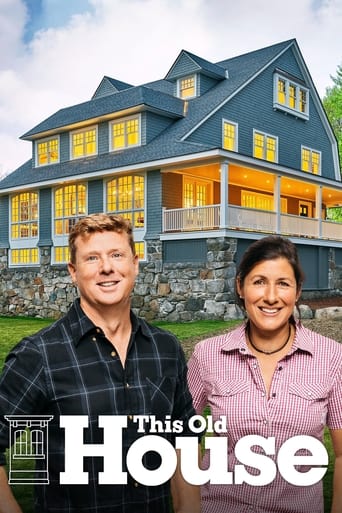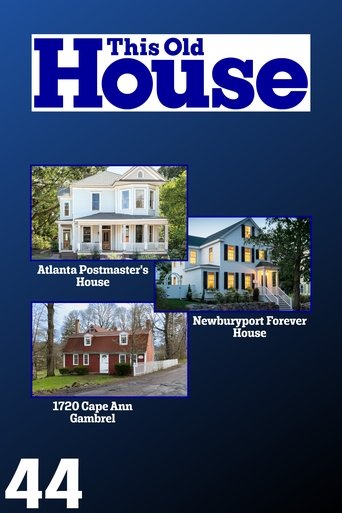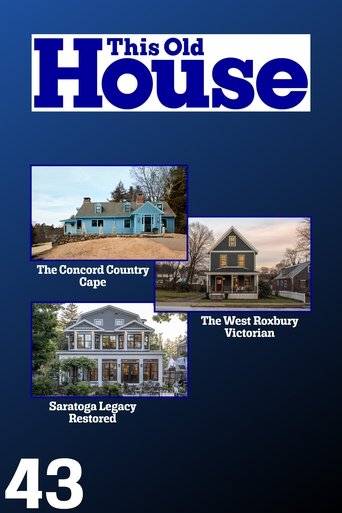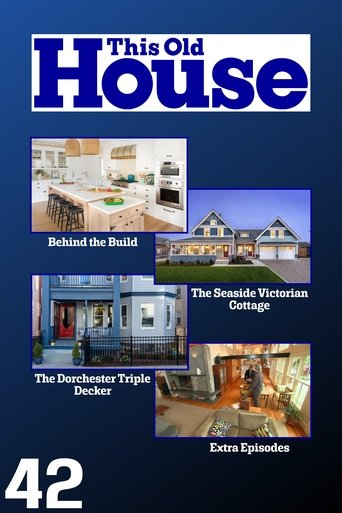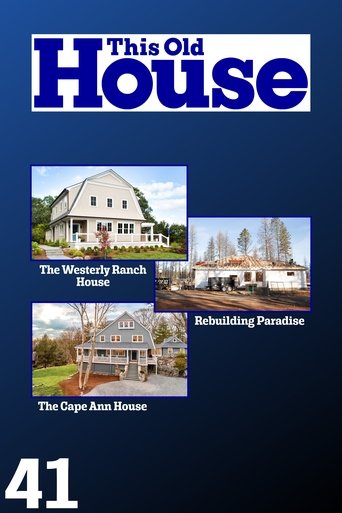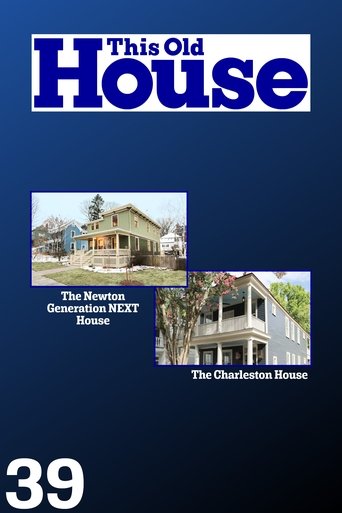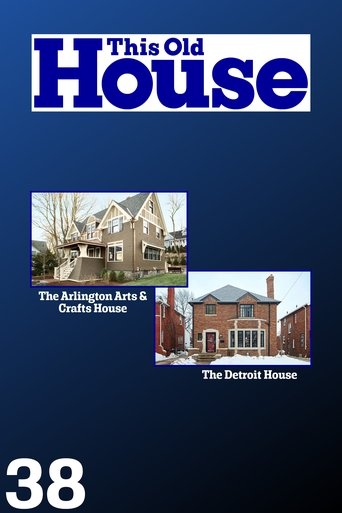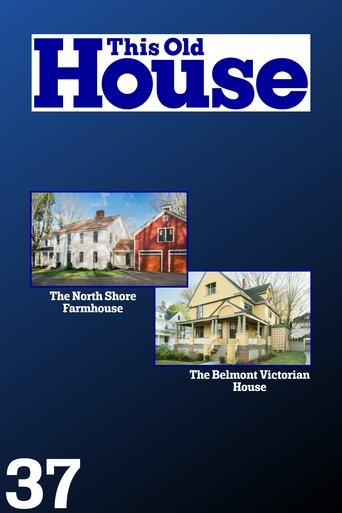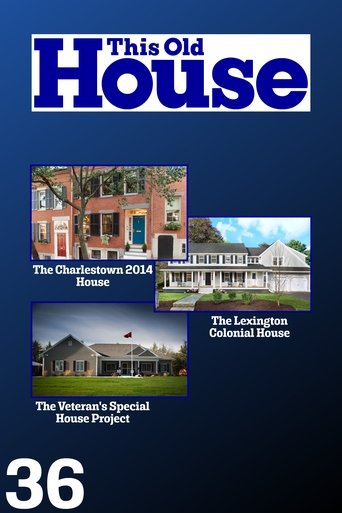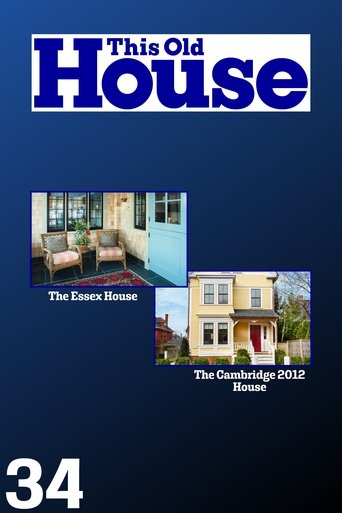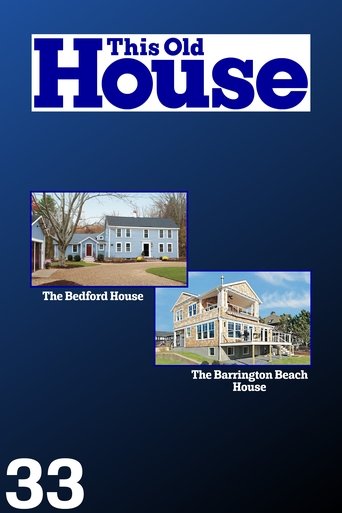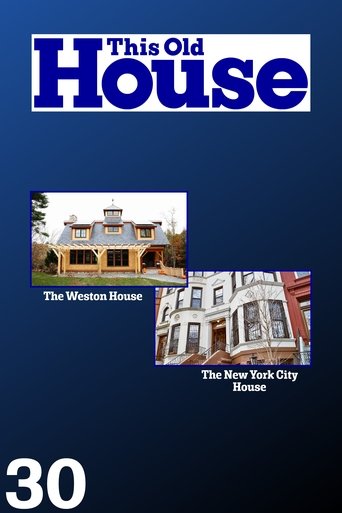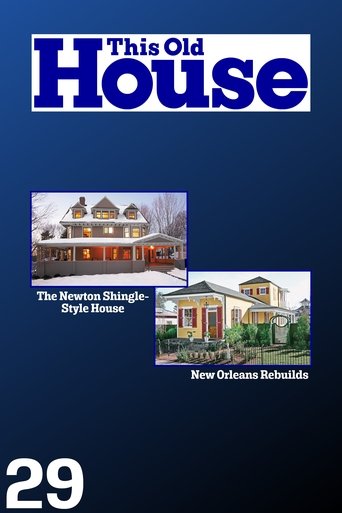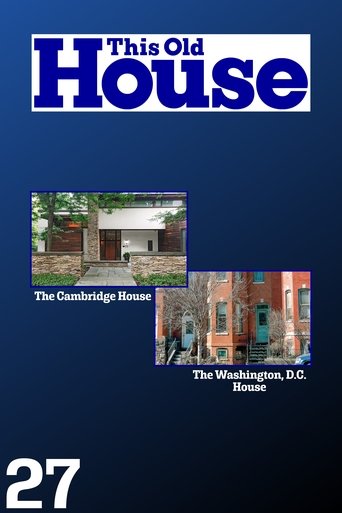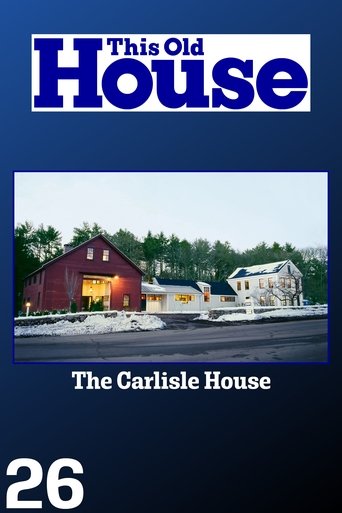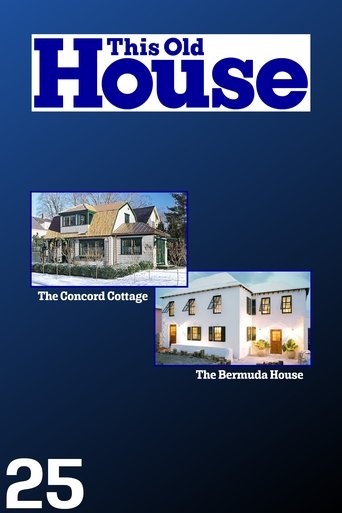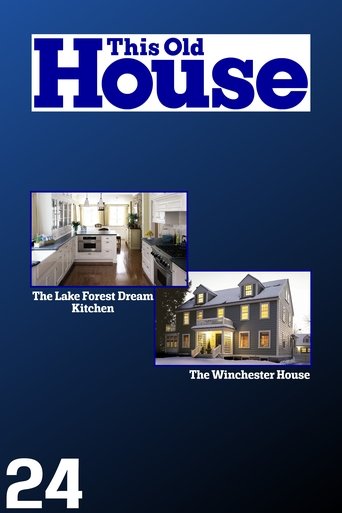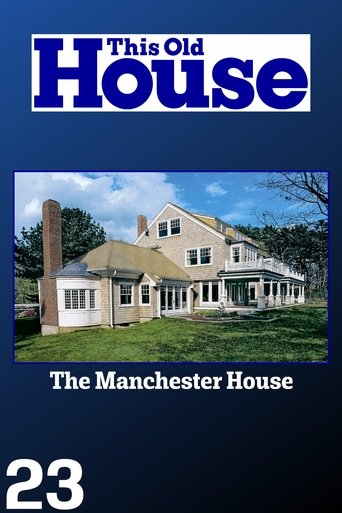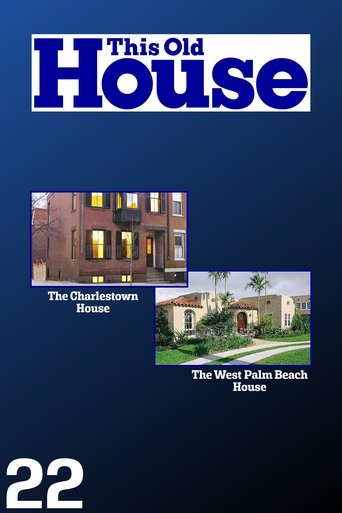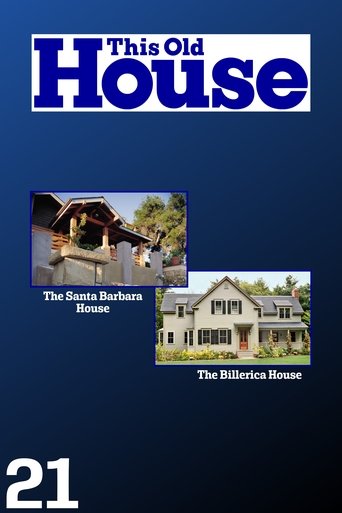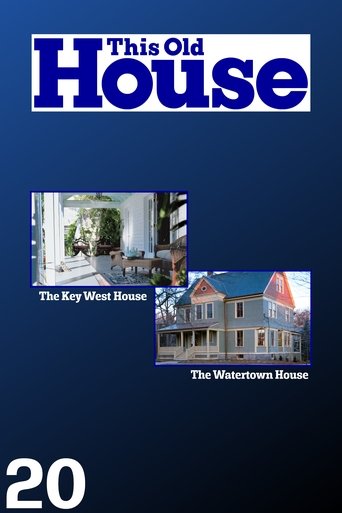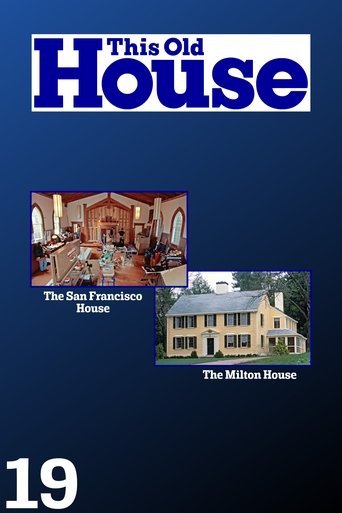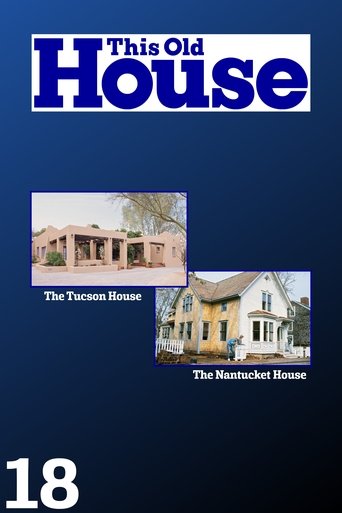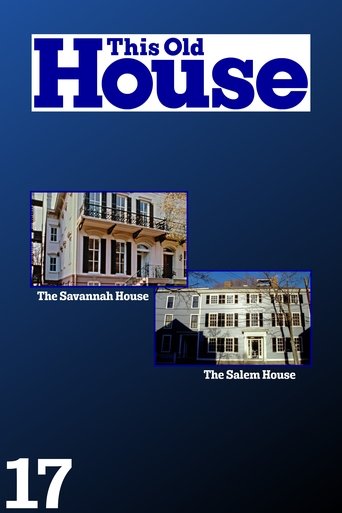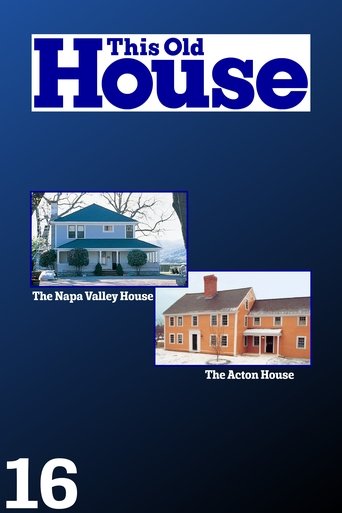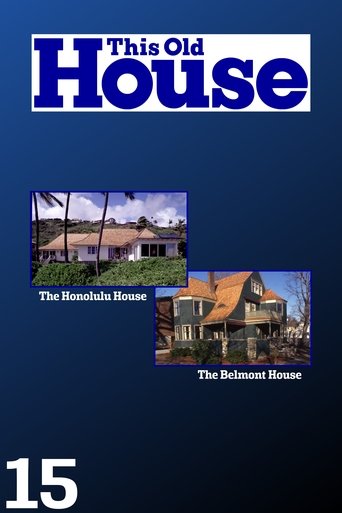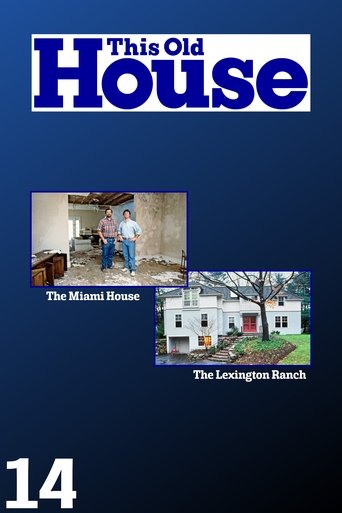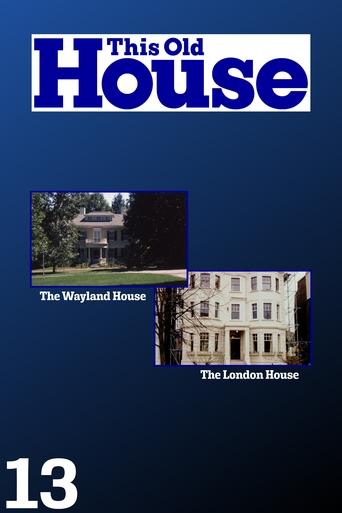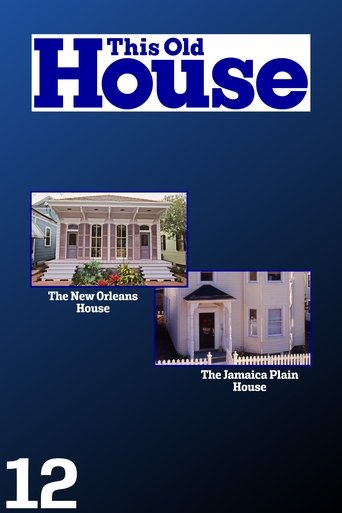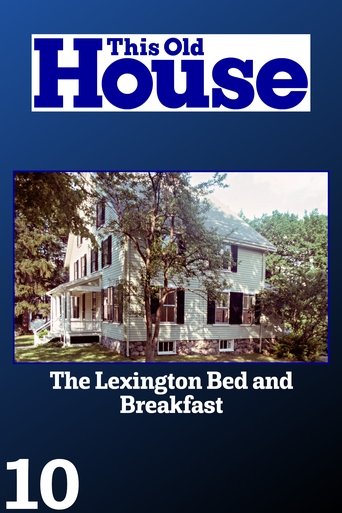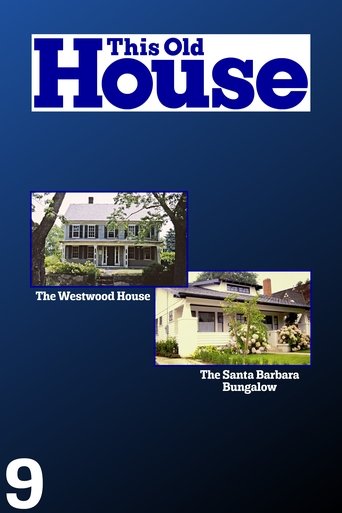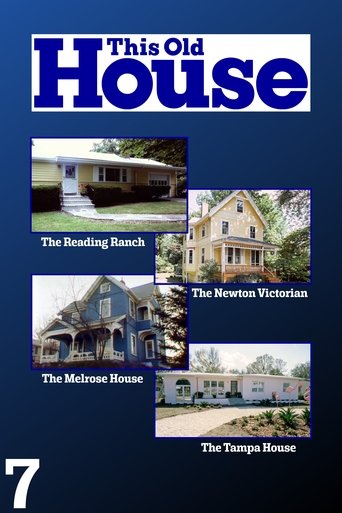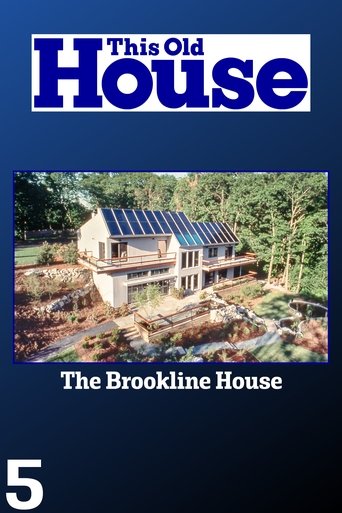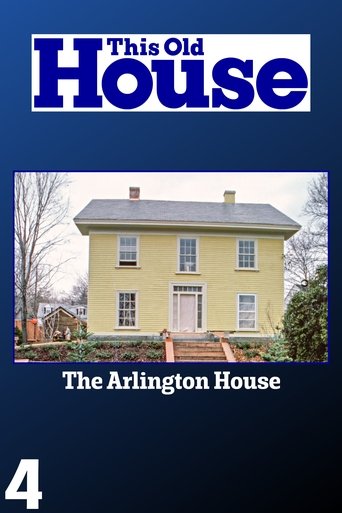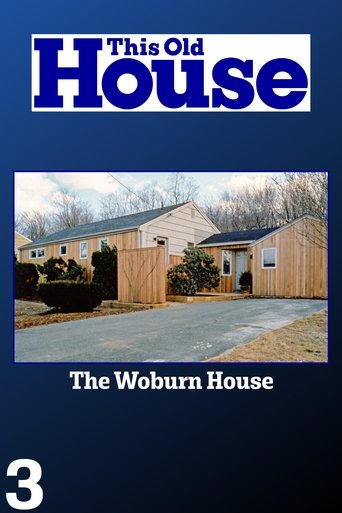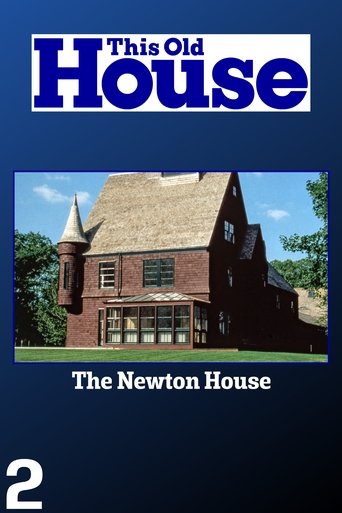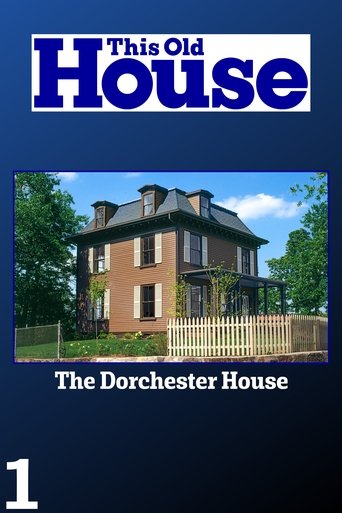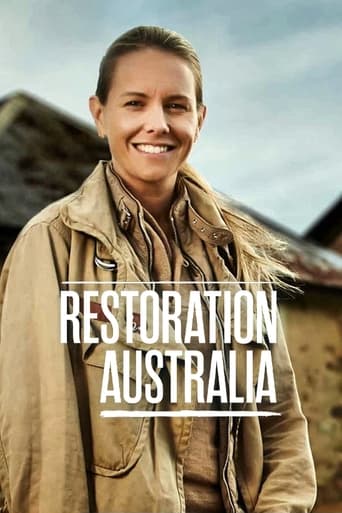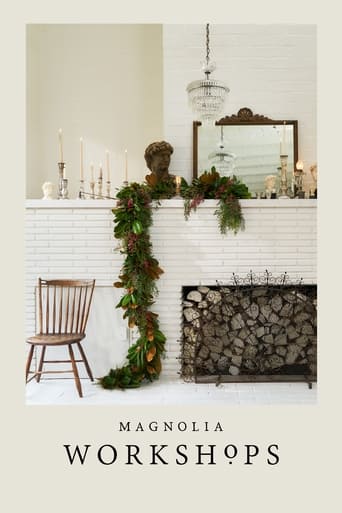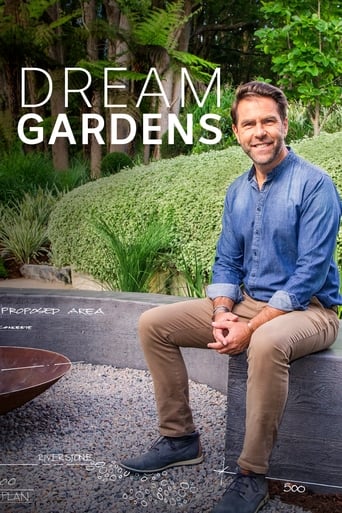This Old House Season 17

TV's original home-improvement show, following one whole-house renovation over several episodes.
Watch NowWith 30 Day Free Trial!
This Old House
1979 / TV-G


The Salem House; The Savannah House
Watch Trailer
With 30 Day Free Trial!
This Old House Season 17 Full Episode Guide
The final days in Savannah. We visit a preservation expert in charge of saving Pulaski Monument in Monterey Square, which is falling victim to the ravages of acid rain, sulfur, and bacteria. At the house, we meet up with homeowner Mills Fleming, who is busy programming his new security system via a touch-tone phone. Blacksimth Johnny Smith is installing the new wrought-iron railing for the house's front stairs. Inside, lighting designer Cyndee Sessoms shows the sand-cast and crystal chandelier lighting fixtures she chose for the house, while in the kitchen, Mills sees the completed cabinetry and stainless-steel appliances. The granite countertops are in, and we visit the local shop where they were fabricated. On the main staircase, we check out brass dust corners, period hardware that keeps dust from collecting in stair's corners. Outside, paint contractor Parker Chapman works to make sure the house will be ready for the final day. The final morning starts with Savannah mayor Floyd Ada
The show opens with a visit to the Port of Savannah, one of the busiest container ports on the East Coast and a major employer for the region. He delivers the new cedar shutters to the jobsite, while the heat pumps are hoisted onto the roof. Installer Jimmy Woods shows us the new maple cabinets going into the kitchen. The building's front facade gets a lift as project manager Mark Fitzpatrick removes the old sheet metal ""pigeon guards"" that were obscuring the lintels. We visit nearby Gulfstream Aerospace, where state-of-the-art business jets are built and fitted out with cabinetry of the finest veneers. Back at the house, we see a floor mosaic go down in the entrance vestibule; its intricate Greek key and acanthus leaf design is formed of porcelain tile cut by computer-controlled water jet. We check out the new and old heart pine floors, matched perfectly by specialist Mike McMurray and crew. Finally, paper hanger Peter Bridgman continues his work in the rear parlor.
The show opens at Congregation Mickve Israel, where Rabbi Belzer takes us on a tour around the 1876 building and shows us the congreation's Torah, the oldest in America, brought over with the original temple members in 1733. At the house, city preservation officer Beth Reiter confers with Mills Fleming about the exterior paint colors and the way they will be applied to the stucco building. Inside, paper hanger Peter Bridgman works on one of the four ceilings he is treating with wallpaper. Before he could proceed, paper hanger Don Taylor had to stabilize the cracking plaster with a system of paper-barrier paint and fiberglass fabric. Finish carpenter Steve Scherz shows us some of the elaborate new moldings going up, including a cornice made up of seven separate elements, design to imitate the building's original plaster cornices. We visit blacksmith Johnny Smith's forge, where he is fabricating a new wrought iron railing for the Flemings' house, while back at the house, tile contractor
The show opens at Fort Pulaski, a Federal fort taken over by Confederate forces early in the Civil War, only to fall to superior weaponry, rendering its masonry construction obsolete. At the site, new mouldings, custom milled to match the existing ones in the house, have arrived and are stacked neatly and out of harm's way in the carriage house. Upstairs, job supervisor Mark Fitzpatrick uses a fax service to up-to-date specs for the new appliances so that he can rough in electronics and gas accurately. Upstairs, drywall contractor Kevin Landry is using a vacuumed sander to smooth out his joints. Viewers then check out a new batt insulation made of cotton scraps and meet flooring contractor Mike McMurray, who will lay a new heart pine floor in the addition and make it match the old, which he will also be refinishing. We see paint and wallpaper prep, and a new plaster ceiling medallion made by master plasterer Jean-Francois Furieri. We visit the Lucas Theater restoration project, where F
The show opens at an architectural salvage shop in downtown Savannah; the proprietress drops by the jobsite to buy some of the salvaged plumbing fixtures and woodwork. The strip oak flooring is ripped up to reveal the original heart pine beneath - it's in great shape and can be refinished. A new spray-on cellulose insulation is perfect for the irregular and thin spaces against the exterior masonry walls of the building. The exterior of the new addition is paneled over with medium-density overlay board, ideal for exterior painted surfaces. Finally, Midnight in the Garden of Good and Evil author John Berendt takes us a tour of the Savannah portrayed in his best-selling book.
The show opens at Wormsloe Plantation, ruins of a 1736 dwelling on the banks of the Inland Passage and the earliest remnant of those colonial times in Savannah. Back at the project house, a new water main is going in on Gordon Street. Inside the new historically accurate (true-divided-light, single-thickness glass) windows have arrived, and project manager Mark Fitzpatrick applies brick-mold trim to one and installs it. The high-velocity air-conditioning ducting and air-handlers are now on site. Viewers then tour the Green-Meldrim house to see its many methods of keeping cool in the days before electricity. Atop the Flemings' house, a new terne metal roof and a fluid-applied acrylic and polyester mesh roof, new and old. A pull-down attic stair is installed, while out back masons reuse local ""Savannah Grey"" bricks from the original structure to build up a veneer on the new addition.
The show begins with the TOH guys antiquing and then heading over to the jobsite on Monterey Square. With demolition of the rear porches complete, the Turner Construction team, led by Mark Fitzpatrick, has moved on to framing, using engineered lumber where possible. Mark tours the project from garden-level apartment to roof. We visit the next door twin of the Flemings' house for clues about its original floors, lighting, mantlepieces and archway between front and rear parlors. Homeowner Mills Fleming and designer Jeff Verheyen review some of the changes - mainly in bathroom placement, number and design - that have occurred since the original blueprints were drawn up. Meanwhile, plumbing contractor Ernest Hutson shows us how to vent an understairs powder-room toilet with an air-admittance valve that precludes the use of a through-the-roof vent. Viewers then tour the architectural and plumbing splendors of the Owens-Thomas House, an outstanding example of the English Regency style built
This Old House heads south to the historic splendor of Savannah, Georgia, where Mills and Marianne Fleming have purchased an 1884 Italianate Victorian townhouse on Monterey Square, one of the city's most beautiful. We tour the house, whose rotting back porches will be replaced by a permanent structure holding an expanded kitchen and dining room on one floor, and a master bedroom and bathroom on the second. Other needed improvements include restoring the heart pine flooring, adding guest bathrooms, installing HVAC system to cope with the region's high heat and humidity and improving the facade with an appropriate iron balustrade and wooden shutters. Mills leads a ""greatest hits"" tour of downtown Savannah. Then contractor J.T. Turner, whose firm has restored many homes and buildings in the historic district, shows us a job in progress and a finished restoration. Finally, Turner's job foreman, Mark Fitzpatrick, goes over the subject house and gives us his take on the main challenges facin
The final days. We arrive after a snowstorm to find the front hall floor finished with a faux marble treatment by decorative painter Julie Clay. In the kitchen, Tom Worthen installs a ""man-made slate"" countertop. It's a dense composite of Portland cement and a mica-like mineral, often used in laboratories, but suitable for domestic applications. Upstairs, Michael Griffiths installs a dense carpet made from recycled soda bottles. In the McIntire room, historical goods merchant John Burrows supervises the installation of a historically accurate carpet, and we visit the factory in England where it was made on a narrow loom whose design has remained much the same since 1790. Then we check out the new alarm system, complete with low-temperature sensor. Josh Feinstein gives our host the tour of the new lighting. The guys examine a pop-up ventilator for the new modular cooktop and we see period-reproduction furnishings in the living room and guest bedroom, where we meets the latest addition t
A historically inspired Federal-style fence is installed to replace the rotting pickets in front of the house. Tom Silva installs a new mortice lock in the front door using an automatic morticing tool. In the kitchen, we meet with Julia Clay, who is painting a diamond pattern on the floor, while in the powder room decorative painter John Parsons is creating a mock library on the walls. We then visit Salem's Peabody Essex Institute for a sampling of its collection, which includes artifacts from the city's maritime past and original records from the witch trials of 1692. Back on the site, our master carpenter installs a new, full-light patio door in the family room to allow more light in, using a new kind of adjustable screw to set the jambs. The crew hauls the newly restored bathtub upstairs to the master bathroom, where it matches beautifully with the new toilet and pedestal sink. Our plumbing and heating specialist has found found antique-look chrome bath fixtures that comply with mod
We meet artist Don McKillop, who is painting a portrait of the Guinees' house, while across the street a brick sidewalk is installed in front of the house. Inside, floor man Jeff Hosking finishes the rough wide pine flooring in the master bedroom, while painter Mike McManus uses a high-volume, low-pressure sprayer to paint hte fine woodwork in the guest bedroom. We take a tour of a replica village that recreates Salem's earliest days days a fishing settlement in 1630. In the backyard, a children's playset goes up to the approval of the Guinee boys. Our host reviews with James Shea the completed roof job - fiberglass shingles on the back slope, repaired slate on the front, new copper flashing throughout - with roofer James Shea, and Charlie Silva puts up a hybrid storm window system: single-pane interior units for the historically sensitive front facade windows; high-quality triple-tracks for the rest of the building. Finally, the guys begin to install the newly painted kitchen cabinets
Homeowner Kevin Guinee tells us that, for now, they have withdrawn their petition to build a carriageway, citing lack of time to build, lack of remaining funds, Deborah's pregnancy and the highly charged atmosphere in town surrounding the issue. The Guinees will finish off the room where the carriageway may someday go as a simple family room. Richard Trethewey arrives with a stainless steel flue liner to prevent condensation from the highly efficient gas furnace from forming in the old chimneys, leaching through and damaging both the mortar and surrounding ceilings and walls. We meet a representative of the regional electric company, who shows us a new, more-efficient water heater being installed on the rental side of the building and explains the company's position on heating water with electricity. The guys fabricate a run of seamless aluminum gutter, and a crew installs a protector that keeps leaves from collecting in the gutter while still allowing water to be collected. We then vi
Our host arrives to see a wallboard delivery truck in action, while inside the wallboard/plaster crew works in the dining room. Upstairs, the guys address the out-of-square conditions in the guest bedroom by rejiggering the door casings for visual appeal. Our host uses a personal computer program to help Deborah Guinee work on the design of her kitchen-to-be, and he pays a visit to wallpaper expert Richard Nylander at the Harrison Gray Otis house in Boston, home of the Society for the Preservation of New England Antiquities, to get a tour of the Federal home and pick up samples of wallpaper for Deborah to consider in her historic rooms.
Our host arrives with news from the latest Historical Commission meeting: a decision on the issue of the carriageway will be made in three weeks. The Guinees asked for a continuance because the corrected drawings arrived only a day before the meeting and they wanted everyone, themselves included, to be fully up to speed on the details. Despite the continuance, public comment was heard, and a lot of it was against the carriageway. Out back, our master carpenter begins to build a trash shed that will allow the Guinees to store their cans and recycling bins. The crew uses engineered lumber to stiffen the floor of the boys' bedroom. Our host visits the Andrew-Safford house, a 1819 late-Federal that is part part of the Peabody Essex Museum, that been renovated by a local charity as a designer showcase. Back at the house, a slow-expanding insulation foam is injected into the walls, the shed is finished off, and the guys compare the merits of two types of storm windows: one-piece interior and
Lighting designer Josh Feinstein shows Deborah lighting treatments for the kitchen and living room, while electrician Jeff Perry works to fish wires for the spots that will highlight the mantelpiece. Kevin Guinee reviews the progress so far and how much money remains in the Guiness' war chest (answer: only about $30,000 out of an original $110,000). We check the state of the new plumbing with plumber Charlie Cashin, then see the new high-velocity forced hot air heating system for the upper two floors. Finally, the guys remove wide pine boards from the attic for the use in the new master bath.
The City of Salem's tree-planting program puts in a Callery pear (pyrus calleryana 'red spire') in fornt of the Guinees' house. In the kitchen, the guys examine the new windows - custom-made with sills and casings to match the existing ones on the house. They feature glass recycled from the original kitchen windows, which were too big to accommodate the countertops. The guys recall the scene earlier when Historical Commission members and interested neighbors visited the site to see a mock-up of the proposed carriageway. Roger Hopkins arrives to realign the granite steps, and Tom Silva puts a time capsule underneath, containing a TOH shirt, a Silva Bros. shirt, and a copy of TOH magazine. Upstairs, the crew cuts through a wall to reconnect the guest room to the Federal for the first time in 120 years. Our host takes the old clawfoot tub to a company in Ludlow, Massachusetts, to get it refinished.
Our host recounts the latest Historical Commission meeting, in which the original approval of the carriageway was sent aside and the whole issue reconsidered. Because of discrepancies between the drawings and the actual house, the commissioners vote to visit the jobsite, see a mock-up of the carriageway, and vote on its appropiateness at a later meeting. Kevin Guinee expresses his frustration at not knowing whether or not that part of the project can move forward. Around back, the crew is replacing the crumbling wood side with a cement-based clapboard that's 60% the cost of cedar. Up on the roof, our host watches as roofer James Shea pulls out and replaces a broken slate; 100 more to go. He also is replacing the old zinc hip flashing with copper fastened with brass screws. The guys review progress in the rebuilt kitchen shed addition, in which Tom Silva used a keyed system of engineered beams to carry the weight of the exterior wall above over a wide span. They install two skylights in
We arrive to hear some troubling news: Some of the neighbors - not pleased with the Historical Commission's approval of the carriageway plan and worried about traffic flow, fumes, and the change to the facade - are thinking of appealing the decision. Upstairs, however, work on the kids' bath proceeds, with the installation of a new vanity, solid-surface counter with bowl, and lighting sconces. Our plumbing and heating specialist puts in a new sink faucet and shows us an electronic valve that shuts down when the clothes washer is off, reducing the chances of leaks. Downstairs, architect Ann Beha walks Deborah Guinee through the proposed new kitchen. After the bathroom mirror is installed, a crew arrives to fabricate and install a wire shelf system for the bathroom closets. Finally, the crew begins demolition for the new kitchen.
The crew assesses the condition of the clapboards on the back of the building, patching presents a large investment of labor, while total replacement will be a big materials hit. Our host promises to take the issue up with the homeowners. Meanwhile, painter Mike McManus and crew apply the first coat of tinted primer - and they like the way the new paint goes on. We then attend the Salem Historical District Commission meeting, where architect Pamela Hawkes presents the carriageway drawings, commissioners ask questions, neighbors voice opinions and the commission votes to approve the concept, asking for more details of the floor. The guys grout the new bathtub wall. The tile floor is in, but before it went down they had to install a premade underfloor tubing system for heat and a cementitous underlayment. Outside, restoration painter John Dee is putting the final coat of paint on the portico. In preparation, he used a wood filler known as Swedish putty to smooth out the surfaces to a nea
We arrive to find Mike McManus and his painting crew continuing their prep work, dry scraping and hand sanding, per Board of Health regulations. The new staging now has safety nets, protecting passerbys from falling tools or debris. Inside, our master carpenter shows us how to lay out and install tile in the kids' bath, using both a stationary and a hand-held wet saw. We revisit the Maitlands' colonial farmhouse in Action, to see how they're liking it. Back at the house, homeowner Deborah Guinee shows us the drawings of the covered carriageway the architects have put together; she'll have to take them in front of the Historical Commission to see if they will approve the scheme.
The crew insulates the exterior wall of the kids' bath with blown cellulose. Tom Silva shows us a paint-on bathtub protector that peels off after construction is complete. We meet roofer James Shea, who has three options, with prices, for the repair of the slate roof. Since the roof can be seen on the street, the Historical Commission will need to approve one of the options: slate repair, replacement of rear hip with fibberglass shingles or replacement with artificial slate. Then we're off to Frankfurt, Germany to visit ISH, the world's largest plumbing and heating exposition. Back in the bath, the crew puts up drywall, using a quick-setting joint compound.
Tom Silva shows us the reframed bathrooms, with floors stiffened by flipping the original joists and sistering on reinforcing members. The bathtub arrives, and the crew horses it upstairs, where plumber Charles Cashin is rough-plumbing the new children's bath and master bath. Restoration painter John Dee uses dental tools to reveal the finest of the portico's details. Before he could get to that stage, however, he had to painstakingly remove about 20 layers of built-up paint, aided by a paint stripping gel. We see wood restorer John Stahl use an epoxy repair system to work on the historic windows on the first floor. The Dutch system replaces rotted wood with workable epoxy and uses a flexible silicone for glazing compound. Architect Ann Beha presents some possible color schemes to homeowner Deborah Guinee, and later, after painting some samples on the building, she choses colors (blue body, white trim, black shutters) that she will present for approval to the Salem Historical Commissio
On a hot July day, the crew got the existing children's bath and future master bath. They discover a flooring system that probably cna't support the heavy load of two bathrooms' worth of china and tile, and decide to beef it up before starting the rough plumbing. Up on the roof, mason Lenny Belleveau reflashes and repoints the chimneys, replacing a poorly built cricket and sealing it with a rubber membrane. Painting contractor Mike McManus powerwashes the building, and architecture students measure the building to prepare ""as-built"" drawings for the architects to use. Architect Pamela Hawkes visits the site and considers a suggestion of cutting through the house's rear ell with a porte cochere to gain access to the back yard and solve the parking problem.
We visit the island of Nantucket, where architect Ann Beha's firm is expanding and renovated the historic Atheneum, the town library. She agrees to help out in Salem. In Salem, the crew erects aluminum pump jack staging - a safe and efficient system, especially when many trades will be working on the exterior. We tour a couple of paint jobs with painting contractor Mike McManus and asks him to squeeze our house into his schedule.The guys finish reglazing the old window sash, using old-fashioned mouth-blown restoration glass. In the basement, Richard Trethewey points out an inefficient electric water heater that currently handles both sides of the house, and an oil heater that could use some tuning up. Our master carpenter points out ""cooked,"" degraded old clapboards on the upper third of the building and recommends replacing them.
Their bid of $205,000 accepted, the Guinees take possession of the house. Our host meets their banker, who explains some of the financing of the deal. Deborah walks through her wish list for the house: a kitchen, master suite and some way of getting off-street parking. Meanwhile, our master carpenter has begun work on the old window sash in the dining room. He removes the stops, loosens the paint and caulk-encrusted lower sash, removes it and begins the process of taking out the glass. Scraped of loose paint, the broken wood is epoxied back into a strong unit and primed. Museum curator Dean Lahikainen gives us a tour of the Pierce-Nichols house, Salem architect Samuel McIntire's first commission. Built in 1782 and remodeled in the Federal style in 1801, it is one of America's finest late-colonial buildings.
The show opens the season with a tour of Salem, Massachusets - the Witch Trials Memorial, the town's formerly bustling waterfront, the residential grandeur of Chestnut Street, the House of the Seven Gables, the Peabody-Essex Museum and the old town hall. Convinced that this is the town the show should work in, our host tours two houses that are for sale with realitor Betsy Merry. While one is in too fine shape, the other needs a lot of work. It's an estate property on the market for $239,000. We meet a couple who is considering making an offer on it - they have two children and one on the way and only six small rooms in their current house. Meanwhile, our master carpenter and general contractor check out the property. Their conclusion: Lots of repairs needed, mostly the result of neglect, but essentially the building is sound.
Free Trial Channels
Seasons


